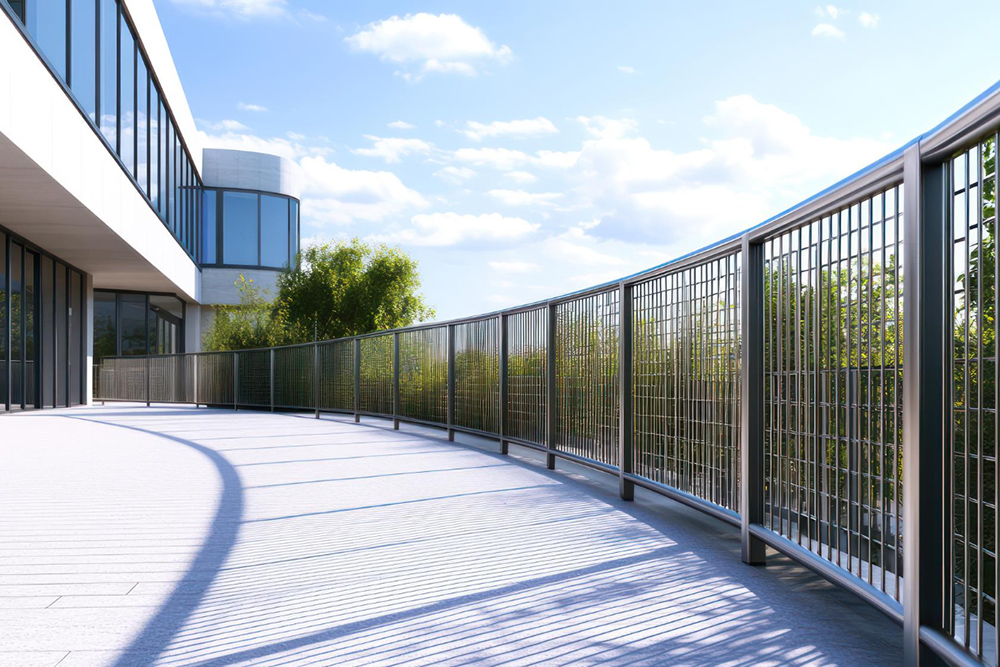How to Determine the Right Fence Material for Your Commercial Property

Choosing the right fencing material for your commercial property can be a daunting task. Whether you’re looking to enhance security, improve aesthetics, or define property boundaries, selecting the right type of fence is crucial. With numerous options available, it's important to weigh the benefits and drawbacks of each material to make an informed decision. Here’s a comprehensive guide to help you determine the best fencing material for your commercial needs.
Understanding Your Fencing Needs
Before you start exploring different materials, it’s essential to define your primary objectives for installing a commercial fence. Consider the following factors:
- Security: Does the fence need to deter intruders or prevent unauthorized access?
- Aesthetics: Is the appearance of the fence important for maintaining the visual appeal of your property?
- Durability: Will the fence need to withstand harsh weather conditions prevalent in Jacksonville, FL?
- Maintenance: How much time and money can you dedicate to fence upkeep?
- Budget: What is your budget for the fencing project?
Answering these questions will help you narrow down the most suitable fencing options.
Common Commercial Fencing Materials
1. Chain Link Fencing
Overview: Chain link is one of the most popular choices for commercial properties due to its affordability and durability.
Advantages:
- Cost-effective and budget-friendly
- Low maintenance
- Offers visibility and air circulation
- Can be enhanced with barbed wire for added security
Disadvantages:
- Lacks privacy
- Basic aesthetic appeal
Best Use Cases:
Ideal for parking lots, industrial properties, and areas where security over aesthetics is the primary concern.
2. Aluminum Fencing
Overview: Aluminum fencing offers a sleek and modern look with the added benefit of being rust-resistant.
Advantages:
- Lightweight and easy to install
- Resistant to corrosion, making it ideal for Jacksonville’s humid climate
- Requires minimal maintenance
- Available in various styles and colors
Disadvantages:
- Not as strong as other materials like steel or wrought iron
- Higher initial cost compared to chain link
Best Use Cases:
Perfect for businesses seeking a balance between aesthetics and function, such as office parks or upscale retail developments.
3. Vinyl Fencing
Overview: Vinyl fencing is known for its versatility and is available in various designs, including privacy, picket, and split rail styles.
Advantages:
- Highly durable and long-lasting
- Low maintenance – easy to clean with soap and water
- Provides excellent privacy
- Resistant to pests and rot
Disadvantages:
- Higher material cost compared to wood or chain link
- Can become brittle over time in extreme temperatures
Best Use Cases:
Suitable for properties looking for a clean and polished appearance, such as residential complexes or community centers.
4. Wood Fencing
Overview: Wood fencing offers a classic and rustic charm, often used for both aesthetic and privacy purposes.
Advantages:
- Natural and customizable appearance
- Can be stained or painted to match surroundings
- Offers good privacy and noise reduction
Disadvantages:
- Requires regular maintenance to prevent rot and insect damage
- May not withstand Florida’s humidity as well as other materials
Best Use Cases:
Great for businesses that prioritize aesthetics and are willing to maintain the fence regularly, such as restaurants or boutique shops.
5. Steel or Wrought Iron Fencing
Overview: Steel and wrought iron fences provide unparalleled strength and security, often used in high-security applications.
Advantages:
- Extremely durable and long-lasting
- Offers superior security
- Can be customized with decorative elements
Disadvantages:
- Prone to rust without proper coating
- Higher material and installation costs
- Requires regular maintenance to prevent corrosion
Best Use Cases:
Ideal for government buildings, schools, or any property needing maximum security.
Additional Considerations
When selecting a fence material, consider the following additional factors:
- Local Regulations: Check Jacksonville’s zoning laws and HOA regulations, as they may dictate the types of fencing permitted.
- Climate: Consider materials that will withstand Jacksonville’s heat, humidity, and occasional storms.
- Professional Installation: Hiring experienced professionals ensures proper installation and longevity of your fence.
Conclusion
Choosing the right fencing material for your commercial property in Jacksonville, FL, is an important decision that impacts security, aesthetics, and overall property value. By understanding your specific needs and evaluating the pros and cons of each material, you can make a well-informed choice.
If you're ready to enhance your property with professional commercial fencing in Jacksonville, FL, look no further than Masters Quality Fence. Contact us today to get your free quote and discover how we can help secure and beautify your property.